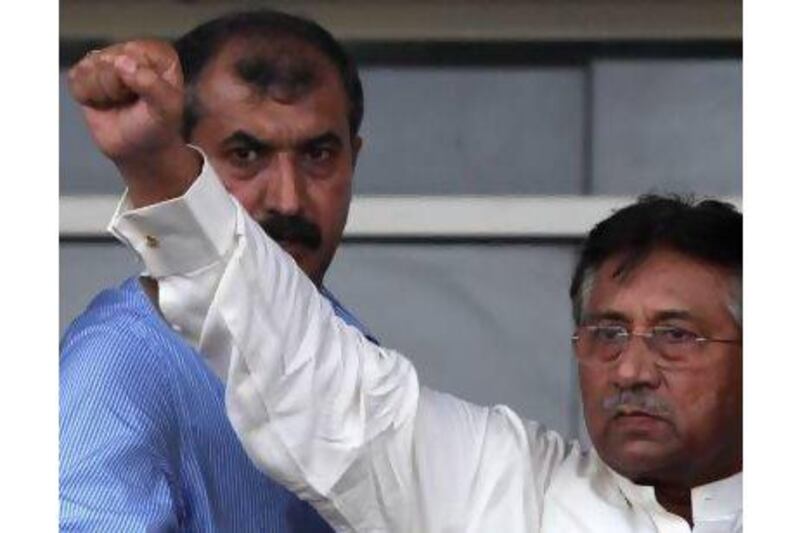Pakistanis seem oblivious to threat posed by Taliban
I can't help but notice the deafening silence from Pakistan's so-called political leaders, religious parties, civil society activists, journalists and others regarding open threats by the Punjabi Taliban (TTP) to assassinate Pervez Musharraf (Former president returns to Pakistan, March 25).
This is after the likes of Nawaz Sharif, Maulana Fazlur and the Jamaat Islami have been endorsed by the TTP as their guarantors.
The All Parties Conference and Imran Khan have agreed to negotiate with the criminal TTP, which has also singled out the Muttahida Qaumi Movement as a target in the upcoming polls.
The Punjab government protected the TTP even after it openly claimed responsibility for the sectarian killings of Shias in Quetta. The Frontier government failed to condemn the TTP after the attack on schoolgirl Malala Yousfzai and has failed to take any punitive action against them since then.
What more proof is required by Pakistanis and the world at large to see who stands where on the issue of the Taliban, Al Qaeda and the fight against terrorism?
The parties in Pakistan can endorse whomever they want, but they must take ownership of the consequences of their choices.
Mohammad Hamza, Dubai
Finances come down to choice
To realise dreams, seek financial empowerment (March 23) is good advice.
It is not about knowledge, it is about the choices we make and our own behaviour.
C Lewis, Dubai
'Reform' means cutting costs
I am writing in response to Justin Thomas's opinion article, Greater public scrutiny will make professional services better (March 25).
The tragically ironic factor in the Stafford Hospital case, referred to in the article, is that the regimes of so-called "accountability" and "compliance" instituted by the National Health Service in England contributed to the scandal.
The introduction of ill-formed and simplistic reforms in much of the public sector in the UK - and in other countries - has led to a culture of "performativity", with ever-increasing numbers of "quality benchmarks" and quantitative measures of performance concomitant with ever-declining levels of service.
Much of the so-called "reform" has more to do with reducing spending at all costs and is surrounded with empty rhetoric about improving service.
Those of us in the education sector face huge challenges to do with purpose and provision. Sadly, the dominant response to the challenges is the increasing insistence on a narrow human-capital rationale for learning, which is leading to disaffection and despair among learners and educators.
Andrew O'Sullivan, Dubai
Agencies must look after maids
I am writing about Maid recruitment agencies suspended (March 23).
If it takes about Dh300,000 to open a recruitment agency, then it would be to the benefit of the agency to ensure that its services include monitoring the welfare of the people who make that business successful.
They complain about having to repatriate employees who fail the medical examination, or who are deemed "unstable", but this is the cost of doing business.
Monica Carver, Dubai
Somaliland moves forward with help
Somaliland is making great political and economic strides (Somaliland: exploration in 'Africa's 55th state', January 28).
I am glad that our friends and Muslim brothers in the UAE are playing a critical role in this process. I am sure Somalilanders will always remain grateful to the UAE. S Sahil, Dubai
Buddha's example not being followed
Having read the news (UN envoy calls for actions to punish Myanmar's rioters, March 25), I think that the image of Buddhist monks - so gently typified by the Dalai Lama - has been battered.
The other day, a newspaper labelled some Myanmar Buddhists as "terrorist monks".
I think the monks in question should revisit the teachings of the Buddha, who said that all human problems arise from confused and negative states of mind.
Once you are able to rid the mind of these destructive states, a person can realise true happiness and fulfilment.
M Nigar, Dubai





